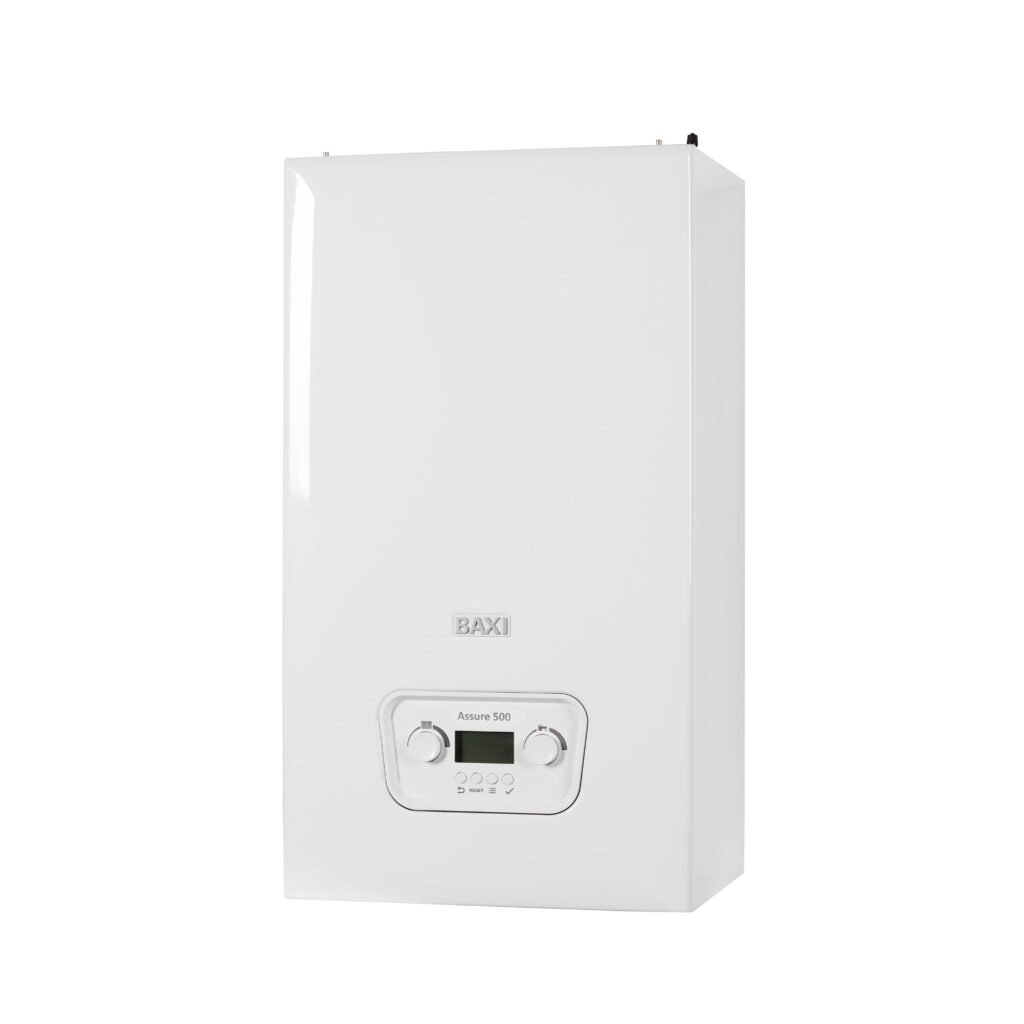The Most Common Faults of Baxi Boilers: A Landlord’s Guide to Gas Safety
In the ever-evolving world of home maintenance, ensuring the safety and efficiency of heating systems should be a top priority for landlords.
Baxi, a renowned name in the boiler industry, offers a wide range of products to cater to various residential needs.
However, even the most reliable systems can encounter faults over time. This comprehensive guide delves into the most common issues faced by landlords with Baxi boilers and provides valuable insights into gas safety requirements.

Combi Boilers: Compact and Convenient, but Not Without Pitfalls
Combi boilers are a popular choice among landlords due to their space-saving design and simultaneous heating and hot water capabilities.
Baxi offers a diverse range of combi boilers, including the Baxi 200 Combi, Baxi 400 Combi, Baxi 600 Combi, Baxi 800 Combi, Baxi Platinum Combi, and Baxi Duo-tec Combi. While these models are celebrated for their efficiency, they are not immune to occasional faults.
One of the most common issues encountered with Baxi combi boilers is a lack of hot water or heating. This can stem from various causes, such as a faulty diverter valve, a frozen condensate pipe, or a malfunctioning printed circuit board (PCB). Another frequent problem is the boiler repeatedly resetting or switching itself off, which could indicate an issue with the air pressure sensor or the PCB.
Addressing these faults promptly is crucial, as they not only impact the comfort of tenants but also pose potential safety risks. Regular servicing and maintenance by a qualified Gas Safe registered engineer can help identify and resolve these issues before they escalate.
Key Takeaways
- Combi boilers are compact and provide both heating and hot water
- Common faults include lack of hot water/heating, boiler resetting, and PCB issues
- Regular servicing by a qualified engineer is essential for early detection and resolution
System Boilers: Efficient but Prone to Specific Challenges
System boilers, such as the Baxi 600 System, Baxi 800 System, Baxi Megaflo System, and Baxi EcoBlue System, offer an efficient solution for homes with multiple bathrooms or higher hot water demands.
While these models are designed for reliability, they can encounter unique faults that require prompt attention.
One common issue with Baxi system boilers is the buildup of limescale or sludge within the system. This can lead to reduced efficiency, blockages, and even component damage over time.
Additionally, faulty motorized valves or circulators can disrupt the flow of hot water, resulting in inconsistent temperatures or reduced pressure.
Landlords should also be aware of potential problems with the expansion vessel, which can lead to water leaks or pressure fluctuations. Regular servicing and maintaining the correct system pressure are crucial to mitigating these issues and ensuring the longevity of the boiler.
Key Takeaways
- System boilers are efficient for homes with higher hot water demands
- Common faults include limescale buildup, faulty valves/circulators, and expansion vessel issues
- Regular servicing and maintaining proper system pressure are essential

Heat-Only Boilers: Robust but Not Immune to Faults
Heat-only boilers, also known as regular boilers, are designed solely for space heating and are commonly found in older properties.
Baxi offers a range of heat-only boilers, including the Baxi 200 Heat, Baxi 400 Heat, Baxi 600 Heat, Baxi 800 Heat, Baxi Solo Heat, and Baxi EcoBlue Heat. While these boilers are generally robust, they can still encounter faults that require attention.
One of the most common issues with Baxi heat-only boilers is a faulty thermostat or control system. This can lead to inconsistent heating or the boiler failing to ignite altogether.
Additionally, problems with the pump or motorized valves can disrupt the flow of hot water to radiators, resulting in uneven heating throughout the property.
Corrosion and scale buildup within the system are also potential concerns, as they can cause blockages and reduce the overall efficiency of the boiler. Regular servicing and maintaining the correct water treatment levels are crucial to mitigating these issues and extending the lifespan of the boiler.
Key Takeaways
- Heat-only boilers are designed solely for space heating
- Common faults include faulty thermostats/control systems, pump/valve issues, and corrosion
- Regular servicing and maintaining proper water treatment are essential
Electric Boilers: An Eco-Friendly Alternative with Unique Considerations
For landlords seeking an environmentally friendly and energy-efficient solution, the Baxi Electromax electric boiler presents an attractive option.
While electric boilers are generally low-maintenance, they are not immune to faults and require specific considerations.
One of the most common issues with the Baxi Electromax is a tripped circuit breaker or blown fuse, which can prevent the boiler from powering on. This can be caused by a variety of factors, such as an electrical fault or overloading the system.
Another potential issue is scale buildup within the immersion heater, which can reduce the efficiency and lifespan of the boiler. Regular descaling and maintaining the correct water treatment levels are essential to mitigating this problem.
Lastly, landlords should be aware of the potential for leaks within the system, which can not only cause water damage but also pose a safety risk due to the presence of electricity. Regular inspections and prompt repairs are crucial to ensuring the safe and efficient operation of the Baxi Electromax.
Key Takeaways
- Electric boilers like the Baxi Electromax are eco-friendly and energy-efficient
- Common faults include tripped circuit breakers, scale buildup, and leaks
- Regular descaling, water treatment, and inspections are essential
Additional Options: Staying Ahead of the Curve
Baxi is continuously innovating and expanding its product lineup to meet the evolving needs of homeowners and landlords. Two notable additions to their range are the Baxi EcoBlue Advance Combi and the Baxi EcoBlue Advance Heat, which offer advanced features and enhanced efficiency.
While these cutting-edge models are designed with reliability in mind, it’s essential for landlords to stay informed about potential faults and appropriate maintenance practices. Regular servicing by a qualified Gas Safe registered engineer can help identify and address any issues before they escalate, ensuring the longevity and optimal performance of these advanced boilers.
Key Takeaways
- Baxi offers innovative models like the EcoBlue Advance Combi and Heat
- Regular servicing by qualified engineers is crucial for these advanced boilers
- Early detection and resolution of faults can ensure longevity and optimal performance
Landlords’ Requirements for Gas Safety
In the realm of gas safety, landlords bear a significant responsibility to ensure the well-being of their tenants and comply with legal regulations. The Gas Safety (Installation and Use) Regulations 1998 mandate that landlords must:
- Conduct annual gas safety checks on all gas appliances and flues by a Gas Safe registered engineer.
- Maintain all gas appliances, flues, and installation pipework in a safe condition.
- Provide tenants with a copy of the gas safety record within 28 days of the check.
- Maintain records of gas safety checks for at least two years.
Failure to comply with these regulations can result in significant fines and, in severe cases, potential imprisonment.
Therefore, it is crucial for landlords to prioritize gas safety and work with qualified professionals to ensure the proper maintenance and operation of their Baxi boilers.
Key Takeaways
- Landlords must conduct annual gas safety checks by a Gas Safe registered engineer
- Maintain all gas appliances, flues, and pipework in a safe condition
- Provide tenants with a gas safety record within 28 days of the check
- Maintain records of gas safety checks for at least two years
- Failure to comply can result in fines and potential imprisonment
By understanding the most common faults associated with Baxi boilers and adhering to gas safety regulations, landlords can proactively address issues, ensure the safety and comfort of their tenants, and safeguard their investments. Regular servicing, prompt repairs, and collaboration with qualified professionals are the keys to maintaining a safe and efficient heating system for years to come.




